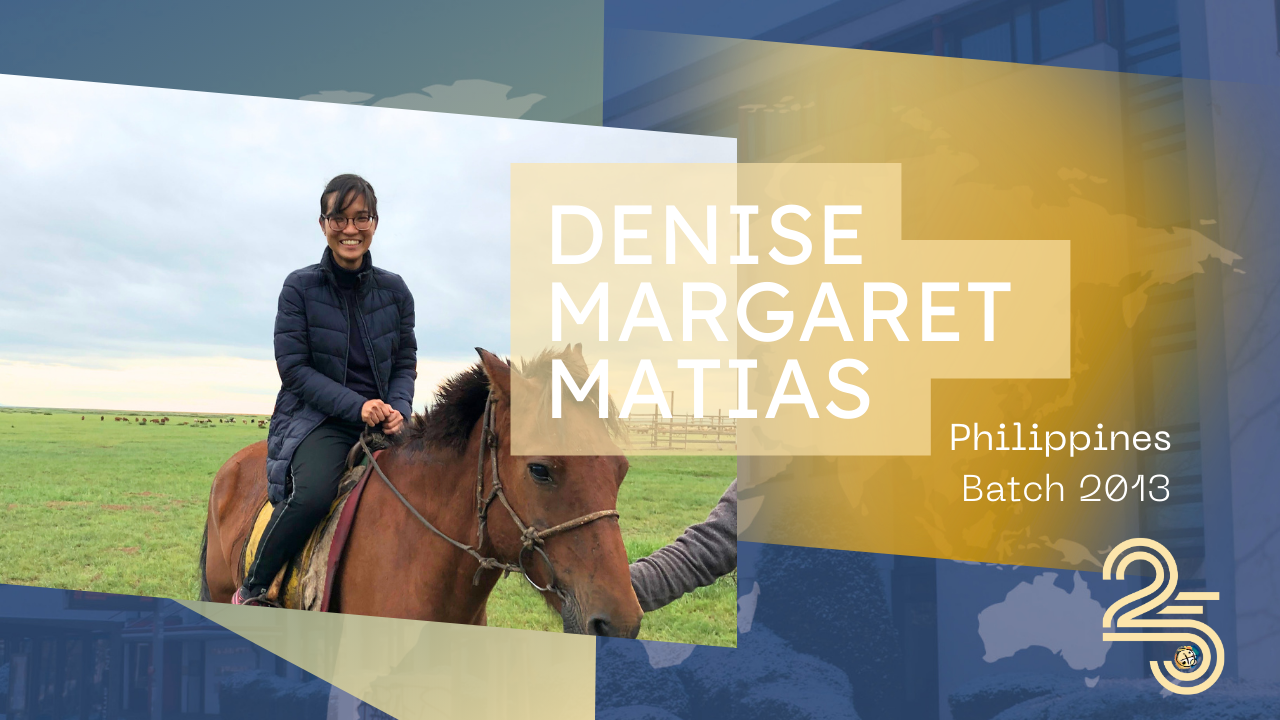Winning awards means my efforts in using science to help civil society and local communities are recognized.
Fact sheet
Denise Margaret Matias comes from the Philippines
PhD at ZEF: 2017
PhD topic: Sustainability of community forestry enterprises: indigenous wild honey gathering in the UNESCO Man and Biosphere Reserve Palawan, Philippines.
PhD funding agency: German Academic Exchange Service (DAAD)
Supervisor: Professor Christian Borgemeister
Current position: Professor at Eberswalde University for Sustainable Development (HNEE), Germany
Q&A with Denise
What was your motivation for conducting your doctoral research at ZEF?
I learned about ZEF when I was an Alexander von Humboldt Foundation Fellow at the Germanwatch [a German NGO] office in Bonn. A co-fellow was hosted at ZEF and from his descriptions it seemed like a really cool place (e.g. colleagues have a good work-life balance) to do my PhD.
How has the topic of your doctoral research evolved in your opinion?
I worked on giant honey bees (Apis dorsata) hunted by Indigenous communities. While non-government organizations such as the Non-Timber Forest Products Exchange Programme (NTFP-EP) Asia continually work on the livelihood component on the Asian level, I feel like there is still much to be done globally. This applies especially to raising awareness about the importance of other honey bees apart from the European honey bee (Apis mellifera). This requires a political impetus as well as ensuring that the WHO-FAO Codex Alimentarius standards also recognize other honey bee species.
How has your doctoral education at ZEF impacted your career?
My doctoral education at ZEF has largely contributed to my career. I have won several awards after finishing my PhD such as the European Science Award of the Eiselen foundation and foundation fiat panis and the 5th Annual Innovation Prize (both in 2018). This year I was awarded the 2024 Planet Earth Award from the Alliance of World Scientists. ZEF has prepared me to “walk the talk” such as applying a transdisciplinary approach in my research, which led to not only create meaningful relationships with target groups but also research results that are more attuned to the realities on the ground.
What are you most proud of with in terms of what you have achieved career-wise so far?
It’s a tie between the Planet Earth Award and my professorship at the Eberswalde University for Sustainable Development. I realized that a permanent position not only opens up head space for creativity (instead of being anxious about end of work contracts) but also allows me to be part of the professional development of the next generation through teaching (probably the silver lining to the high teaching load we have as a University of Applied Science). The Planet Earth award meanwhile recognized my efforts in using science to help civil society and local communities. Of course, I did / do those things without expectation of remuneration but it also feels good to be recognized for my efforts once in a while.
What is your best memory of ZEF?
Eating lunch at the ZEF Mensa and seeing classmates from different ZEF departments! The ZEF Mensa was a place where friendships thrived and dreams were built. It was such a memorable experience to just go to the ZEF Mensa and meet a lot of people.
ZEF and its Doctoral Program turn 25 this year. What are your wishes and suggestions for their future?
I wish that every anniversary of ZEF is a new chapter that brings renewed enthusiasm for using science in the improvement of people’s lives. This can be concretely measured in the number of its doctoral graduates and successful transdisciplinary projects. I hope that more alumni meetings be organized (even online). As the ZEF family grows older and bigger more collaborations can be and actually are forged among us and our diverse experiences and expertise.



Leave a Reply